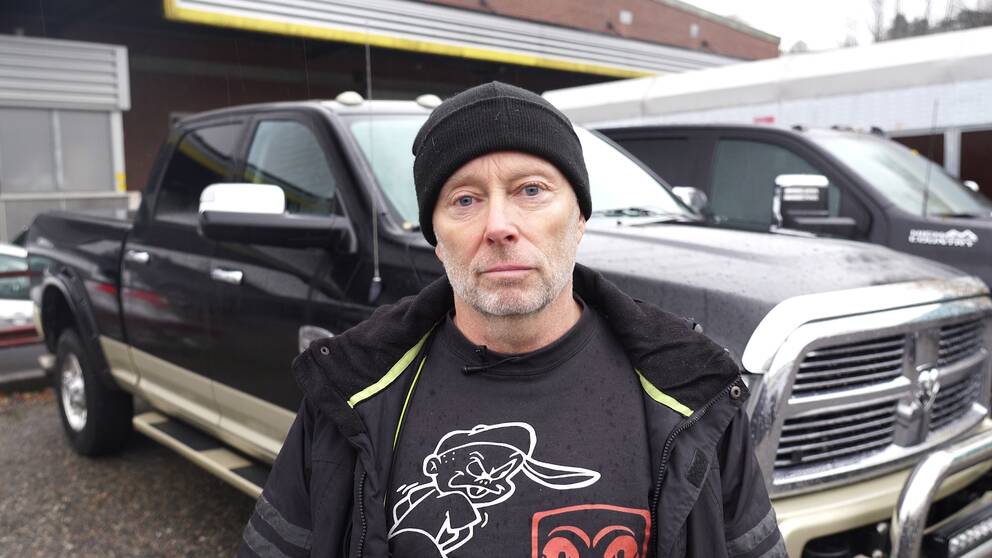All the lights on the electric cars. This has been the case in recent years. But on the way to the politicians' goal of a fossil-independent vehicle fleet as early as 2030, electrification does not seem to be enough. Electric cars are still expensive for so long, and they would become many more, causing the new need for charging posts, battery recycling and increased capacity in the electricity grid. Measures that are not free.
And the fact is that there has long been a way to reduce carbon dioxide emissions significantly faster: To rebuild cars that are already in traffic and drive them on renewable fuels.
Emission reductionToday, there are approximately five million passenger cars in Sweden. Just over half go on gasoline. Most of these, after adjustments, can be run on E85 ethanol fuel instead. At that time, the emissions of fossil carbon dioxide from these cars would decrease by between 50 and 80 percent, depending on how and where the ethanol was manufactured.
So the potential is great. One million converted cars mean reduced carbon dioxide emissions by at least one million tonnes per year. More than today's battery cars and charging hybrids are capable of together.
The conversion itself is simple, often it is enough to install a sensor and reprogram the car's fuel injection. It costs less than SEK 10,000 and the car gets ready after 2-3 hours in the workshop. The infrastructure in the form of E85 pumps is available throughout the country and has long been paid for.
A simple measure that can produce real results and is also cheap should be a dream for politicians. The question one asks is why has no one picked this low hanging fruit?
The browser is not supported
SVT does not support playback in your browser. We therefore recommend that you switch to another browser.
Learn more about browser support
You need JavaScript enabled in your browser to view this video.
The car mechanic about rebuilding petrol cars Lost the ballWith the proposal for a build-on bonus of SEK 5,000 (half of the ridiculous contribution to electric bicycles), the Environment Party seems to have realized that the infrastructure built up during the ethanol boom may soon be gone. The gas stations the party forced in 2005, through the heavily criticized pumping law, are unused because hardly any motorists drive on the E85 anymore. One by one, the unprofitable pumps are removed as no tanks from them.
The failure is neither technical nor environmental. That's because Swedish politicians dropped the ball.
First, they forgot ethanol, instead of being fueled by fuel-efficient "clean" diesel cars, like many others. When these fell into disrepute because of their proven deadly exhaust emissions, all financial instruments were rescheduled to stimulate electric car sales instead:
- In the so-called Supermiljöpbil premium, those who bought an electric car received a grant of up to SEK 40,000. Cars that ran on biofuels became unaffected and, unsurprisingly, hardly any were sold at all.
- Today's Bonus Malus system gives bonuses of up to SEK 60,000 to purely electric cars. The ethanol cars sold for adventure do not receive any bonus at all (but at least do not pay malus - surcharge).
However, the most significant change came in 2015 with the ethanol tax. Over a night, renewable E85 became clearly more expensive to drive than the fossil gasoline that would be phased out. When the tax was removed in 2018, the market for ethanol cars was gone. Stone dead.
Finnish-French predecessorsThe question is how much Finland has been the role model for the Environmental Party. There, anyone who rebuilds their petrol car for ethanol operation receives a grant of SEK 2100. Finland is also one of the few countries in Europe where carbon dioxide emissions per kilometer traveled continue to decline, in many other European countries they have returned again. France pays a conversion premium of almost SEK 11,000 when older cars are rebuilt or replaced, in addition the owner receives a bonus on the tax. Two reasons for the ethanol success in the country - the third is that the French E85 costs less than eight SEK a liter.
Ethanol is not a perfect fuel, far from it. But waiting for the vehicles of the future can play an important role in reducing the climate impact.
The question is whether our politicians are capable of holding the ball this time?

